Rabbana Lakal Hamd Meaning, Arabic Text & Hadith

“Rabbana lakal hamd” is a sacred remembrance (zikr) recited during the ritual of ruku (bowing) in prayer.
Reciting “Rabbanaa lakal hamd” during ruku serves as an expression of gratitude and acknowledgment of Allah’s greatness, humbly recognizing that all praise and glory belong to Him alone.
Rabbana Lakal Hamd In Arabic
رَبَّنَا لَكَ الْحَمْدُ
Rabbana Lakal Hamd Meaning In English
Rabbanaa Lakal Hamd means Our Lord, all the praises are for You.
Is it Rabbanaa lakal hamd or Rabbana wa lakal hamd?
Both “Rabbanaa lakal hamd” and “Rabbana wa lakal hamd” are valid versions of the supplication, and both are attributed to the Prophet Muhammad (SAW) in reliable hadiths.
Each version has been reported in various hadiths and has been used by the Prophet (SAW) in different contexts. The essence of the supplication remains the same, expressing praise and gratitude to Allah. The different versions of this supplication include:
- Rabbi La Tazarni Fardan Wa Anta Khairul Meaning
- Rabbi Habli Milladunka Zurriyatan Meaning & Arabic Text
Rabbana Wa Lakal Hamd
رَبَّنَا وَلَكَ الْحَمْدُ
Meaning: Our Lord, and all the praises are for You.
Hadith Text
Narrated Abdullah binUmar: I saw Allah’s Messenger (ﷺ) opening the prayer with the Takbir and raising his hands to the level of his shoulders at the time of saying the Takbir, and on saying the Takbir for bowing he did the same; and when he said,
“Sami`a l-lahu liman hamidah “, he did the same and then said, “Rabbana wa laka lhamd.” But he did not do the same on prostrating and on lifting the head from it.”
Source: Sahih al-Bukhari 738
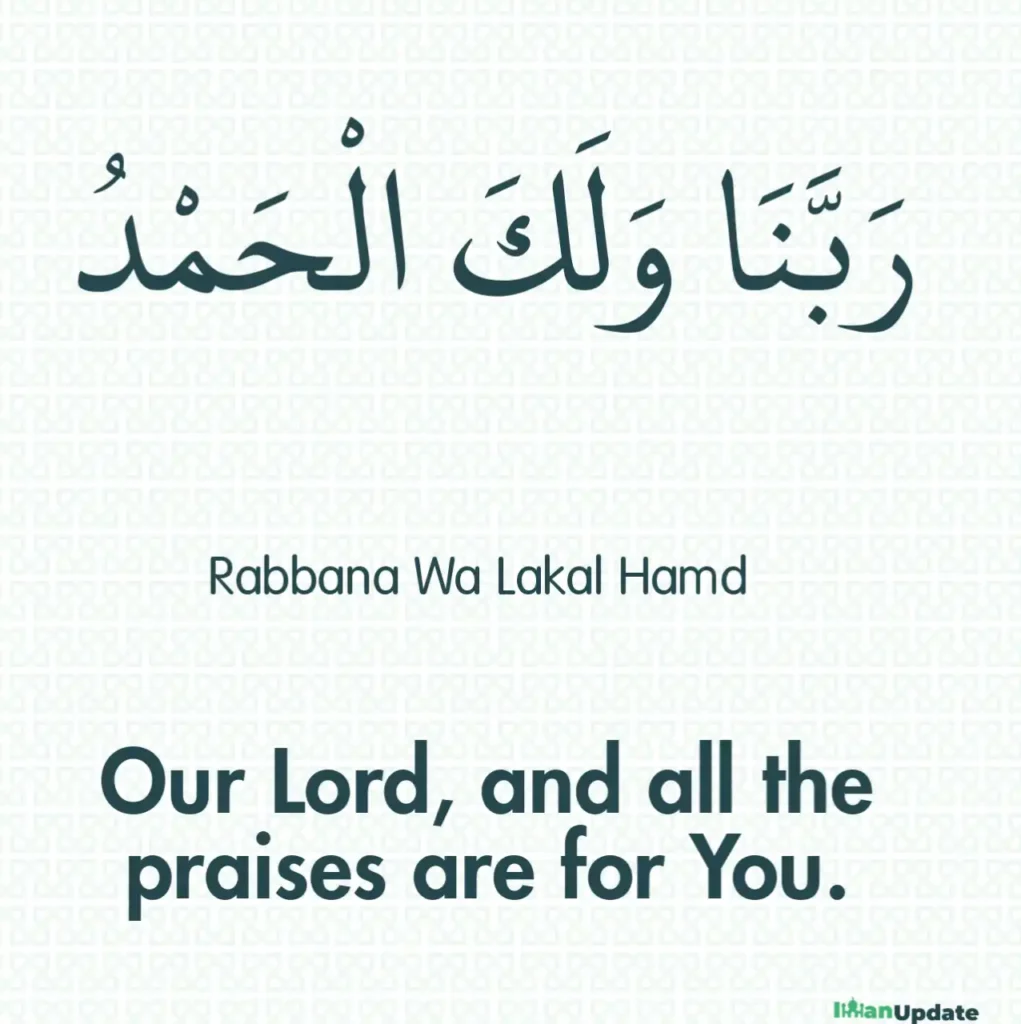
Allahumma Rabbanaa Lakal Hamd
اللَّهُمَّ رَبَّنَا لَكَ الْحَمْدُ
Meaning: O Allah, our Lord, all the praises are for You.
Hadith
Abu Huraira reported: The Messenger of Allah (ﷺ) while teaching us (the principles of faith), said: Do not try to go ahead of the Imam, recite takbir when he recites it, and when he says:
“Nor of those who err” you should say Amin, bow down when he bows down, and when he says: “Allah listens to him who praises Him” say: “O Allah, our Lord, to Thee be the praise”.
Source: Sahih Muslim 415
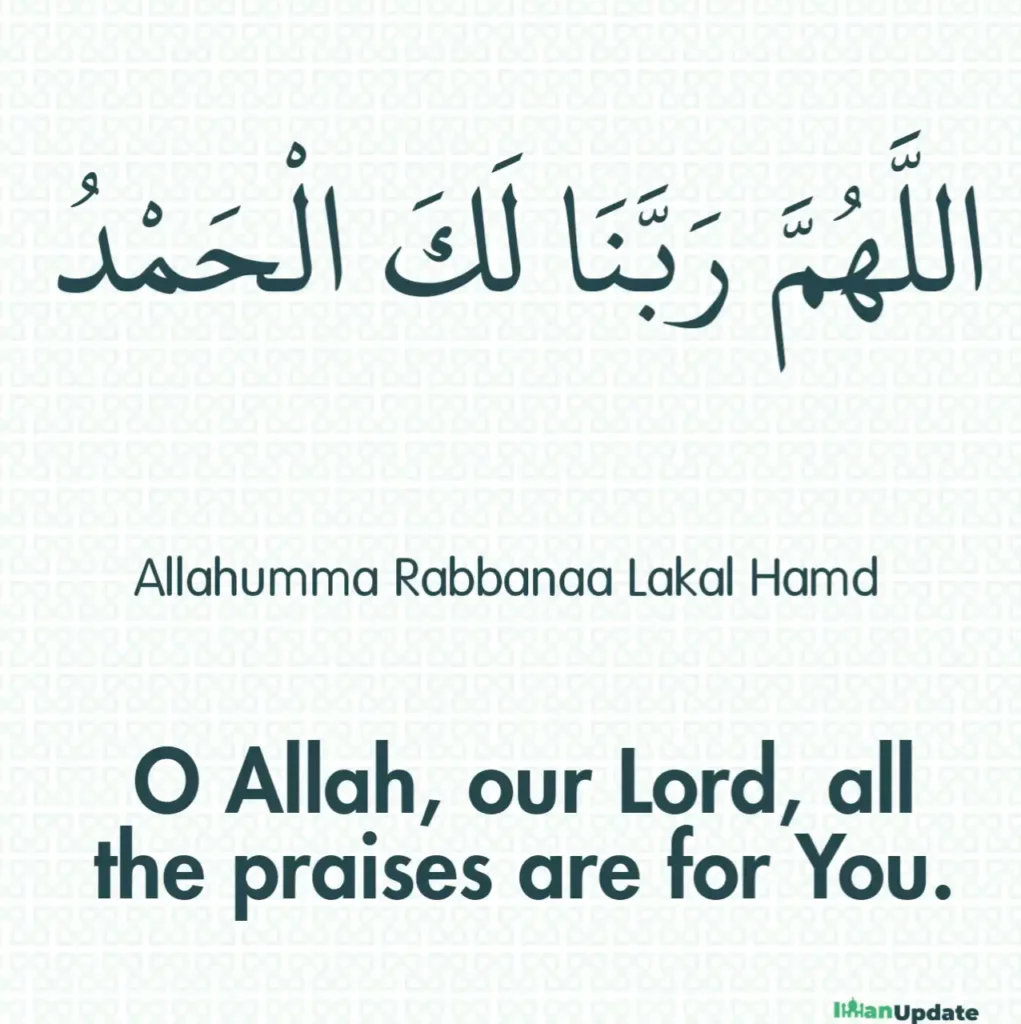
Allahumma Rabbana Wa Lakal Hamd
اللَّهُمَّ رَبَّنَا وَلَكَ الْحَمْدُ
Meaning: O Allah, our Lord, and all the praises are for You.
Hadith Text
Narrated Abu Huraira: When the Prophet (ﷺ) said, “Sami`a l-lahu liman hamidah,” (Allah heard those who sent praises to Him), he would say, “Allahumma Rabbanaa wa laka l-hamd.” On bowing and raising his head from it the Prophet (ﷺ) used to say Takbir. He also used to say Takbir on rising after the two prostrations.
Source: Sahih al-Bukhari 795

Rabbana Wa Lakal Hamd Full Dua
The full Dua of Rabbbana wa lakal hamd is:
رَبَّنَا وَلَكَ الْحَمْدُ، حَمْداً كَثيراً طَيِّباً مُبارَكاً فِيهِ
Transliteration: Rabbanaa wa lakal-hamd, hamdan i katheeran tayyiban mubaarakanfeeh.
Meaning: Our Lord, and praise is Yours, abundant, good and blessed praise.

The longer version is:
رَبَّنَا وَلَكَ الْحَمْدُ، مِلْءَ السَّمَوَاتِ وَمِلْءَ الأَرْضِ، وَمَا بَيْنَهُمَا، وَمِلْءَ مَا شِئْتَ مِنْ شَيءٍ بَعْدُ. أَهلَ الثَّناءِ وَالْمَجْدِ، أَحَقُّ مَا قَالَ الْعَبْدُ، وَكُلُّنَا لَكَ عَبْدٌ. اللَّهُمَّ لاَ مَانِعَ لِمَا أَعْطَيْتَ، وَلاَ مُعْطِيَ لِمَا مَنَعْتَ، وَلاَ يَنْفَعُ ذَا الجَدِّ مِنْكَ الجَدُّ
Transliteration
Rabbana Wa Lakal Hamd Mil’as-samaawaati wa mU’al-‘ardhi wa maa baynahumaa, wa mil’a maa shi’ta min shay ‘in ba’d. ‘Ahlath-thanaa’i walmajdi, ‘ahaqqu maa qaalal-‘abdu, wa kullunaa laka ‘abdun. Allaahumma laa maani’a limaa ‘a’tayta, wa laa mu’tiya limaa mana’ta, wa laa yanfa’uthal-jaddi minkal-jadd.
Meaning
Our Lord, and praise is Yours, (A praise that) fills the heavens and the earth and what lies between them, and whatever else You please. (You Allah) are most worthy of praise and majesty , and what the slave has said – we are all Your slaves. O Allah , there is none who can withhold what You give, and none may give what You have withheld . And the might of the mighty person cannot benefit him against You.
Tasmee’ (which means saying Sami’a Allaahu liman hamidah) when rising from bowing, and tahmeed (which means saying Rabbana laka’l-hamd) when standing up straight are Sunnah mustahabbah according to the majority of scholars, but the Hanbalis are of the view that they are obligatory, which is the correct view.
Shaykh Ibn ‘Uthaymeen (may Allaah have mercy on him) said in al-Sharh al-Mumti’ (3/433): The evidence for that (i.e., that it is obligatory) is as follows:
The Messenger (peace and blessings of Allaah be upon him) always did that, and he did not omit to say Sami’a Allaahu liman hamidah in any circumstances. It is the sign for moving from bowing to standing. The Prophet (peace and blessings of Allaah be upon him) said: “When he says Sami’a Allaahu liman hamidah, then say Rabbana wa laka’l-hamd.” End quote.


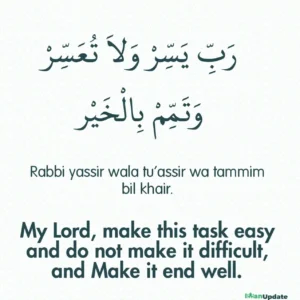

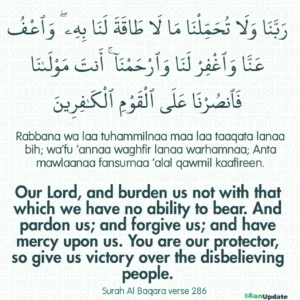
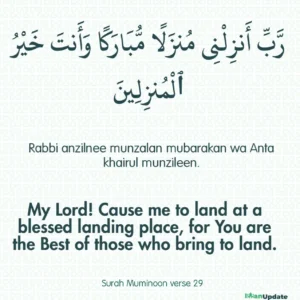
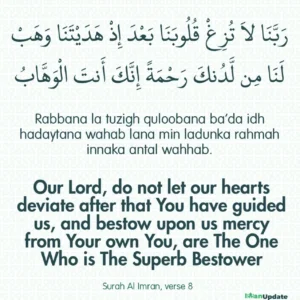
canadapharmacyonline
https://expresscanadapharm.shop/# Express Canada Pharm
canadian pharmacy online
They have strong partnerships with pharmacies around the world.
zoloft gabapentin interaction
The staff always remembers my name; it feels personal.
Their global pharmacists’ network is commendable.
informacion de gabapentin en espanol
I’m always informed about potential medication interactions.
Always providing clarity and peace of mind.
where to get generic cipro no prescription
Their health and beauty section is fantastic.
Their multilingual support team is a blessing.
cytotec route
Their digital prescription service is innovative and efficient.